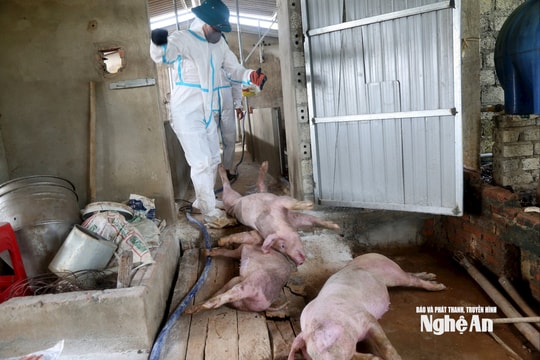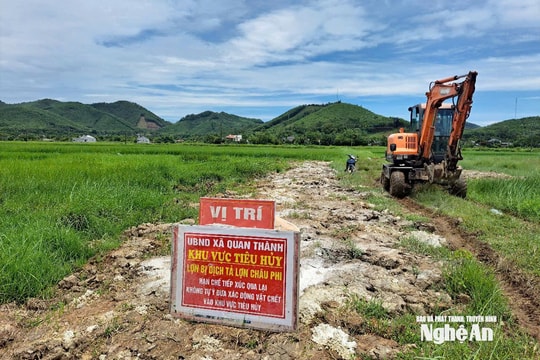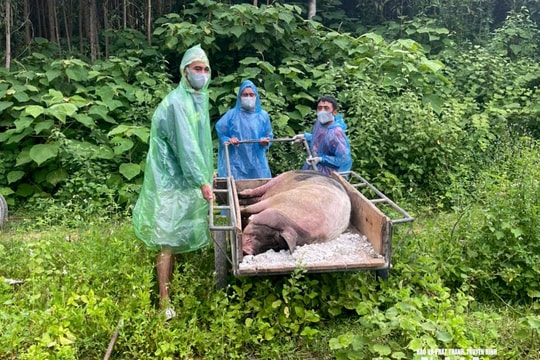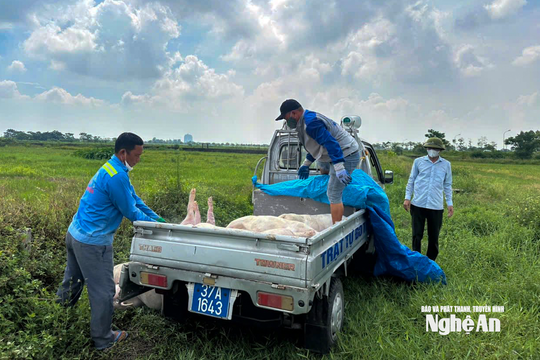Vietnam successfully tested and produced a vaccine against African swine fever.
Healthy sows were vaccinated and allowed to live with infected pigs. After more than two months, they were still healthy and gave birth.
At the meeting on "Solutions for using vaccines and biological products to prevent African swine fever" organized by the Ministry of Agriculture and Rural Development on the morning of July 2, Professor Nguyen Thi Lan, Director of the Vietnam Academy of Agriculture, said that Vietnamese scientists have isolated PAM cells to produce vaccines against African swine fever and are researching to multiply the virus in large quantities.
|
Professor Nguyen Thi Lan reports initial research results. Photo:Tung Dinh. |
Four months ago, the Academy began researching four types of vaccines to prevent African swine fever, including (inactivated vaccine (tested in the laboratory), traditional attenuated vaccine (viral strain creation techniques have been used, molecular biology testing is being conducted), natural attenuated vaccine (screening and selecting natural strains), and vaccine using gene deletion technology (research is underway).
With the inactivated vaccine, the research team successfully isolated and selected several virus strains, selected the vaccine production environment, and identified the virulent virus strain to evaluate the vaccine quality. "The initial results were good on a small laboratory scale," said Professor Lan.
The research team conducted the experiment in the animal breeding area of the Vietnam Academy of Agriculture and the field breeding facility of Mr. Trinh Vu Trinh (Hung Yen). The experimental injection was given to 14 sows from April 18 and the second injection was repeated on May 12. After 8 weeks, 13 sows were still in normal health, ate well and gave birth, one sow died of swine fever after the first injection.
Tests were conducted on healthy pigs and kept together with sick pigs. The results showed that vaccinated pigs were not infected.
|
Authorities in Hanoi practice responding to African swine fever. Photo:Ngoc Thanh. |
From the experimental results, Ms. Lan affirmed that the vaccine is safe and highly protective for vaccinated pigs. However, due to the short research and testing time, many experiments have been shortened, so Ms. Lan believes that vaccines need to be researched on a large scale and repeated, adding more experiments to optimize the formula and quality of the vaccine. Further research is needed to create other better vaccines.
"The Ministry of Agriculture and Rural Development needs to urgently provide funding for research and production of African swine fever vaccine; organize to help the Academy evaluate the quality of the produced vaccine so that it can soon be put into production," Professor Lan recommended.
At the meeting, representatives of many research groups from businesses also introduced the initial results of producing vaccines and biological products that can be applied to livestock farming to help prevent African swine fever.
Minister of Agriculture and Rural Development Nguyen Xuan Cuong said that the Ministry will direct specialized agencies, in coordination with the Vietnam Academy of Agriculture, to soon develop a process for testing and inspecting vaccines in the special circumstances of Vietnam. The Minister also directed that we should not be subjective with the results achieved, but should approach them in the most creative ways to speed up the steps and soon commercialize the vaccine on the market.
Over the past 100 years, scientists around the world have researched and produced 7 strains of African swine fever vaccines (with evaluated efficacy) from attenuated virus strains. However, commercialization of these vaccines has encountered many difficulties due to the high production costs, so prevention of African swine fever in pig farms has not been implemented. Whenever the pathogen spreads, the measure applied is to destroy the pig herd.
DAfrican swine fever appeared in Vietnam more than 4 months ago and spread rapidly to more than 60 provinces and cities across the country. There have been nearly3 million pigs infecteddestroyed. The epidemic has not shown any signs of abating and there is a risk of it continuing to spread to the remaining provinces, especially the Mekong Delta region.


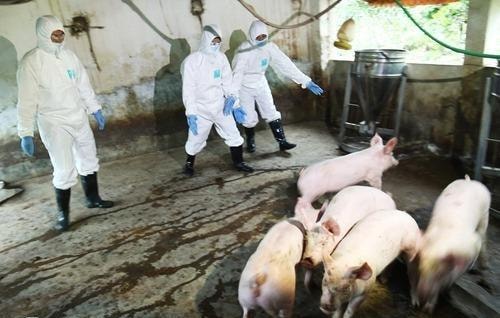
.jpg)
.jpg)
